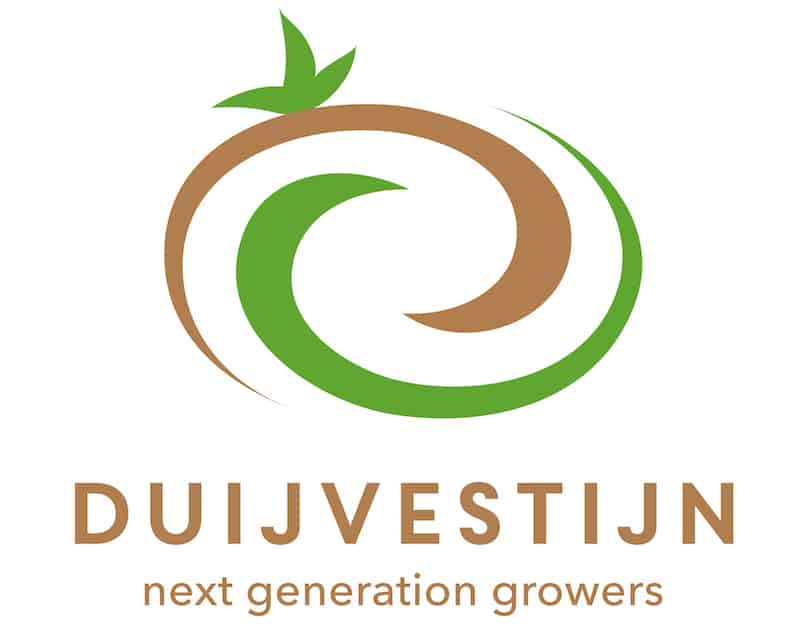Innovations
“We are constantly looking for new systems and new ways to improve and increase the sustainability of our products, services and processes."
Duijvestijn Tomaten is internationally renowned for its sustainable innovations. Several of these innovations have been awarded prizes. For example, the ID Kas® was voted overall Winner of the GreenTech Awards in 2014, an important international environmental award. In recognition of the creation of the ID Kas® and partly thanks to our efforts in the field of geothermal energy, we were voted the Best Tomato Grower in the World in 2015 at the Tomato Inspiration Event in Berlin.
We are very proud of these accolades. They motivate us to continue to innovate and improve our processes, products and services, and actively contribute to a healthier world.
Geothermal energy
To reduce our energy consumption, as one of the first growers in the Netherlands we decided to heat our greenhouses using geothermal energy, which at that time was still quite unique in horticulture. Together with geologists and students of mining from Delft University of Technology, we devised a unique design to realise this project. After years of preparation, the first pile was driven in 2010 and the installation was up and running in 2011. Using geothermal energy saves up to 7 million m 3 of natural gas every year and virtually eliminates the use of fossil fuels. To ensure that our tomato plants can grow properly, we use residual CO 2 from industries, including from the port of Rotterdam. This is purified and transported to our greenhouses via pipelines. So we not only reduce our consumption of fossil fuels, we also use a large quantity of CO 2 which would otherwise be released into the atmosphere by industrial processes.
ID Kas®
We designed a completely new and revolutionary greenhouse concept, the ID Kas®, especially for the development of new tomato varieties and energy saving cultivation methods. The completely new construction enables more light to penetrate the greenhouse than was possible before in existing structures. The enormous insulation capacity also allows 60% energy savings, the use of low-grade heat and achieves higher productivity. The ID Kas® is the first high-tech greenhouse concept for a circular cultivation system. In this research centre, new varieties are extensively tested for resistance, shelf life and resilience.
Biobased packaging
Our ambition is to ultimately make all our processes circular. In addition to reducing our energy consumption, we are committed to maximising the use of our waste streams. Seeing the volumes of paper and cardboard used to pack the tomatoes on one hand and the green waste from the greenhouses on the other, inspired us to try and find out if we could make packaging material from plant residues. In partnership with WUR we investigated the possibilities, and this resulted in various types of biobased packaging. We are also currently examining the possibilities of developing clothing made from tomato fibres.
Vertical Farming
According to the UN, the world population in 2050 will number almost 10 billion people. To feed all those mouths in the future, smarter systems of food production are essential. Since December 2018, we have been running trials with vertical farming: the practice of growing crops in vertically stacked layers. We are trialling various crops and studying what the ideal conditions are. The advantage of this cultivation system is that you can produce more on a relatively small surface; production takes place much closer to the target market so transport movements are reduced; high-precision crop management is possible so that close to zero waste can be achieved and the risk of pests and disease pests is virtually nil.
Sustainable drying oven
Sometimes the supply of tomatoes simply outmatches the demand. That is such a shame, as because there is nothing wrong with the quality of the tomatoes. To reduce waste, we developed a special drying oven that dries any surplus production fresh from the greenhouse to create delicious and high quality end products, such as dried tomatoes and tapenades. Geothermal energy provides the heat for this machine.
In recent years, we have increasingly been looking for ways to prevent surpluses. Among other things, by implementing various digital innovations in our greenhouses (such as data-driven precision farming), we have become increasingly proficient in making harvest forecasts. Therefore, we can much better estimate how many tomatoes we can expect in a certain week and can anticipate accordingly. As a result, we hardly need to use the drying oven anymore, but we can still provide dried tomatoes on request.
